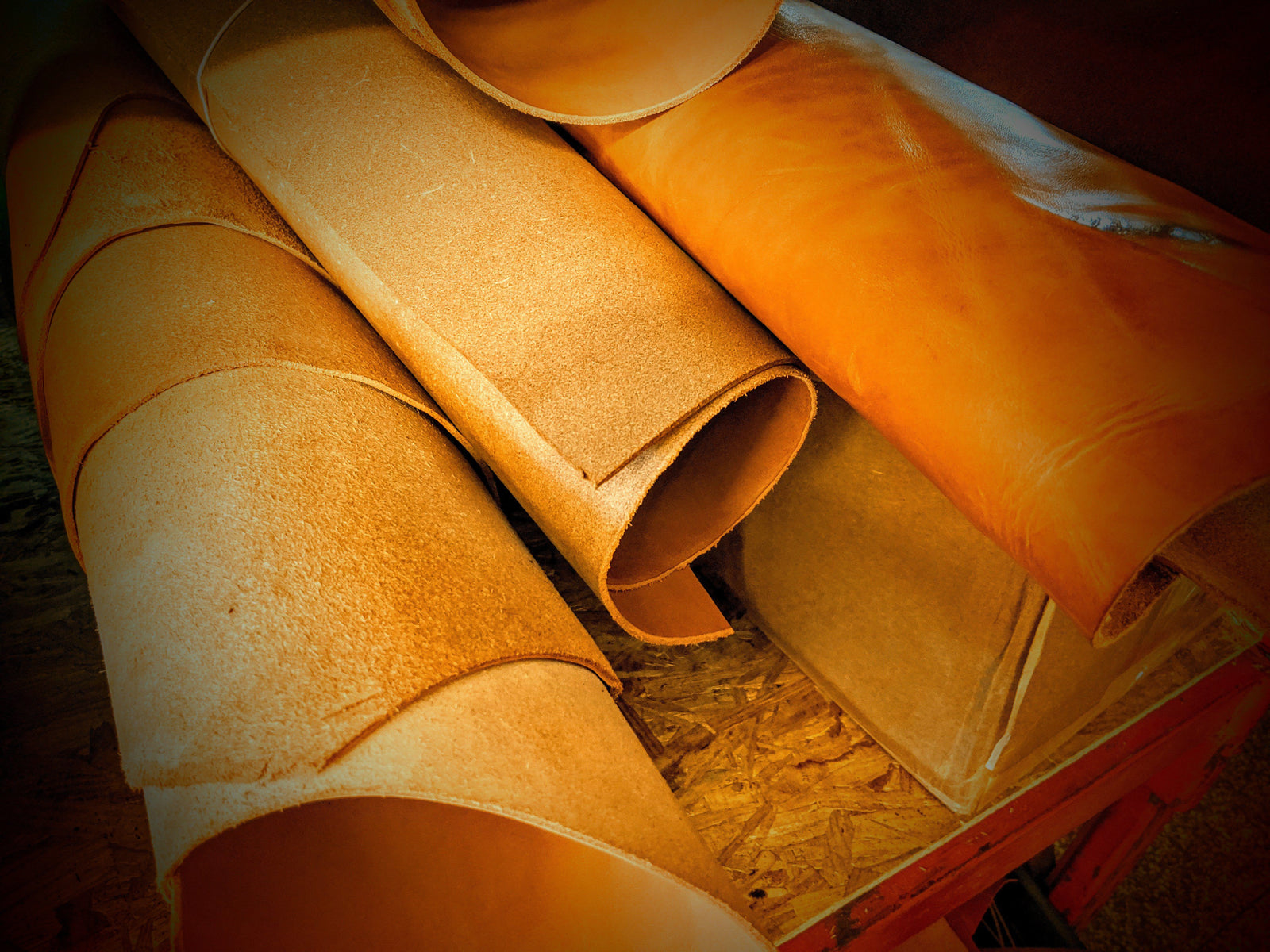Your Cart is Empty
Happy New Year - Subscribe to my Youtube!
Happy New Year - Subscribe to my Youtube!

How has Covid-19 Affected the Leather Supply Chain
June 23, 2020 4 min read
It should be said that all industries have suffered to some degree with the global Covid-19 pandemic. That's just a no-brainer. But some might be curious how it has affected our supply chain.
Anvil Customs is a niche craftsman style shop. We are not the only ones, as there are many individual craftspeople and small boutique style shops out there. So it should be said that while we are quite busy and go through a lot of cowhide here, compared to larger garment/shoe/accessory brands we actually make up a fairly small percentage of the cowhides purchased in a given year. When a tannery fulfills orders they have to handle their big customers first, before they get to us smaller manufacturers. The leather industry is somewhat volatile so to ensure the tannery's success it only makes good business sense to favor their larger clients. Under normal circumstances this isn't really an issue. There are still plenty of hides for us to purchase, and all the other craftspeople too...
But then a novel coronavirus called Covid-19 launched the world into a global pandemic. It shuddered just about every industry for a month solid, and continues to shake an already volatile leather market. Tanneries were forced to close for a period of time and then work skeleton shifts at a fraction of their efficiency. But something else also closed during that time. Cattle Auctions, and Slaughterhouses were also put on pause. The entire Cattle Agriculture Industry was in a holding pattern. Farmers slowed their feeding regiments that are designed to get them to an ideal weight to fetch an ideal profit per/pound. This meant that when tanneries were allowed to open they still didn't have the hides they needed to tan. The cows were still out in fields, as the farmers waited (understandably) to see at what capacity they were going to be able to sell their beef.
Back at the Tanneries all over the world, the large brands that usually purchase immense volumes of hide were forced to delay or outright cancel their orders which naturally put a big dent in the liquidity of the leather supply chain. And even now, as things slowly start to pick back up, tanneries are beholden to their larger customers to fulfill those big orders first and foremost. Which means the little guys like us are facing delays on receiving hides. If you purchased a belt with us in early May you likely were told that we had a delay getting the leather sides we use to make those belts for a period of time. That is why.
The relationship between the food supply chain and the leather supply chain is actually quite important. Because while people all over the world are buying and consuming more beef the demand for leather goods has actually decreased. Most notably this is due to the rise of synthetic materials as folks look to what they believe are more ethical and eco-friendly materials. So now we have a system that is out of equilibrium, and it creates a somewhat sad scenario: The garment industry basically only purchases what the consumers want which in terms of leather is only the absolutely best unmarked, unscarred, hides. And that leaves a huge percentage of cowhide that just isn't used for anything. Short of storing or rendering the hides, cattle ranchers all over the world are literally trashing, burning or burying lower grade hides because there isn't the demand to use them. I just have to wonder if these hides would have helped mitigate some of the shortages we're seeing from the tanneries because of the pandemic.
I also have to wonder at just how eco-friendly and ethical some of these new synthetic materials actually are. It turns out they shed tons of microfibers that eventually find there way into the ocean and we're not really sure how that affects the environment either. At least with leather, we've been literally making things out of leather since we became hunter-gatherers. And clearly we aren't culturally going to stop eating beef anytime soon (I'm certainly not.) So instead of circumventing and causing a wasteful system it sure would be nice to put some gray matter behind finding something constructive to use with this wasted hide.
We need a return to quality products. We need people to understand that when you care about how a product got into your hands or onto your plate that you appreciate the whole experience better. We take our time making products we can be proud of (and that you can too.) Fast, and cheap materials marketed as guilt free alternatives are going to do more damage than people think I suspect. But in the mean time, during this truly bizarre pandemic we're simultaneously experiencing both an abundance and a shortage of leather and I'm not really sure what to think about that.
